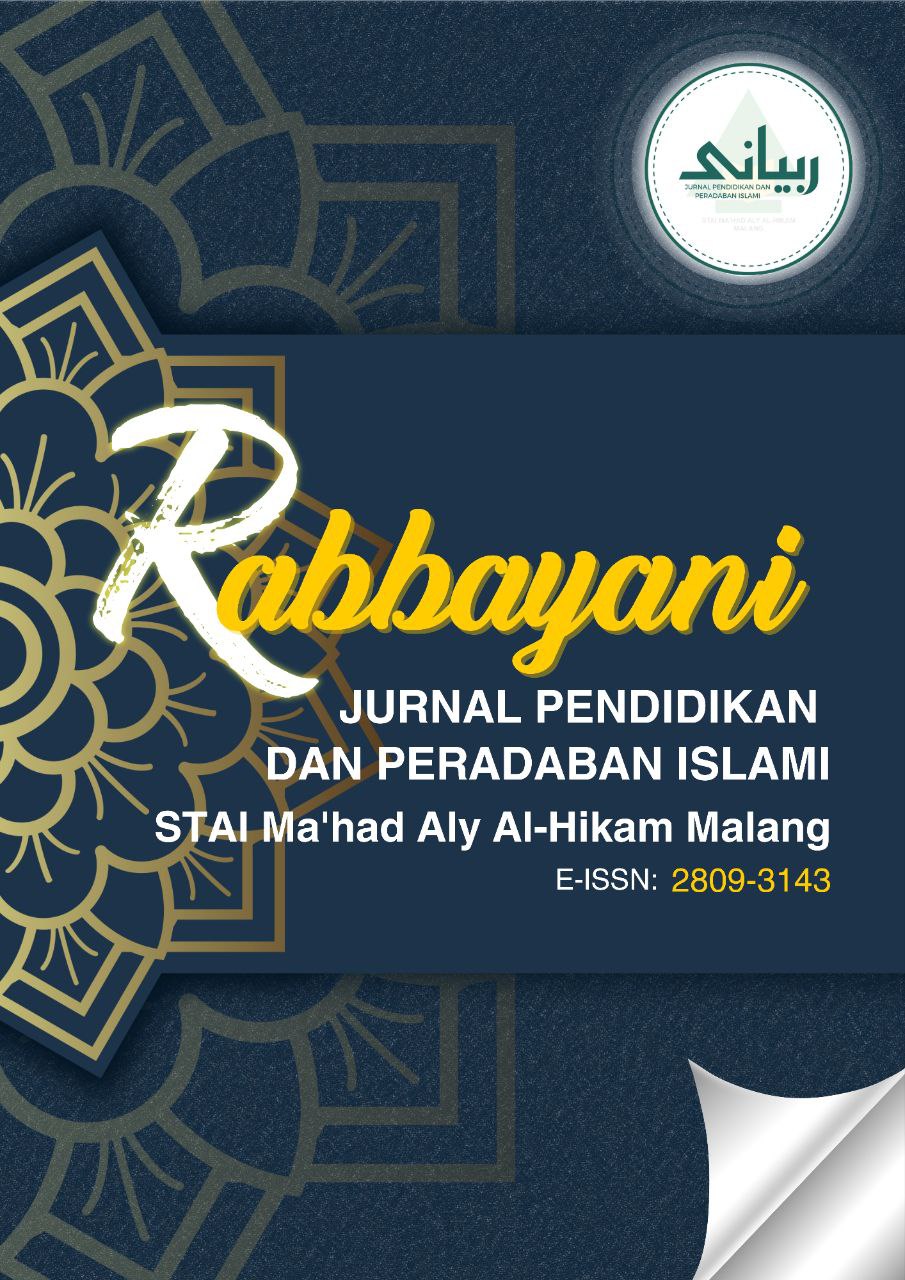Pengaruh Penggunaan Telepon Genggam terhadap Perkembangan Akhlak Siswa di Madrasah
DOI:
https://doi.org/10.32478/yf4bdr32Keywords:
handphone, attitude, Islamic elementary schoolAbstract
The development of digital technology, particularly mobile phones, has brought significant changes to society, including the field of education. This study aims to examine the influence of mobile phone usage on the moral development of students at Madrasah Ibtidaiyah Al Hasib Pakis. The research employed a quantitative approach with an associative design. The population consisted of all MI Al Hasib students, with a sample of 65 students determined using random sampling techniques. The data collection instrument was a questionnaire that had been tested for both validity and reliability. Data analysis was carried out using a simple linear regression test with the assistance of SPSS. The reliability coefficient of the instrument for mobile phone usage was 0.638, while for students’ moral development it was 0.764, both constructed using a Likert scale. The results of the regression analysis showed a constant value of 40.534 and a coefficient of -0.242, indicating that mobile phone usage has a negative effect. The significance test showed a Sig. value of 0.044 < 0.05, which means that mobile phone usage has a significant influence on the moral development of students. Therefore, H1 was accepted and H0 was rejected. The coefficient of determination (R Square) was 0.063, indicating that mobile phone usage contributes 6.3% to students’ moral development, while the remaining percentage is influenced by other variables not examined in this study. Based on the interpretation scale of R, this influence is categorized as very low.
Downloads
References
Ali, M. M. (2022). Metodologi penelitian kuantitatif dan penerapannya dalam penelitian. JPIB: Jurnal Penelitian Ibnu Rusyd, 1(2), 1–5.
Alfiyana, Y., Serani, D., & Fricticarani, A. (2024). Efektifitas pemanfaatan video TikTok sebagai media pembelajaran TIK untuk meningkatkan minat belajar peserta didik era literasi digital. Petik: Jurnal Pendidikan Teknologi Informasi dan Komunikasi, 10(1), 32–43.
Febriani, N., & Dewi, W. W. A. (2019). Perilaku konsumen di era digital: Beserta studi kasus. Universitas Brawijaya Press.
Febriyanti, B. N. (2023). Teknik pengambilan sampel. Universitas Jambi, 13(3), 1576–1580.
Fitria, F., & Sudarmadi, D. (2019). Pengaruh sistem informasi akuntansi dan pengendalian internal terhadap kinerja karyawan PT. Beton Elemen Persada. JASa (Jurnal Akuntansi, Audit dan Sistem Informasi Akuntansi), 3(1), 1–13.
Hidayat, H. (2021). Pengaruh metode inkuiri terhadap hasil belajar ilmu pengetahuan alam siswa kelas V di SD Negeri 3 Dompu tahun pembelajaran 2020/2021. JagoMIPA: Jurnal Pendidikan Matematika dan IPA, 1(2), 99–112.
Mz, S. R. (2018). Akhlak Islami perspektif ulama salaf. Edukasi Islami: Jurnal Pendidikan Islam, 7(1), 67–100.
Nugroho, C. (2020). Cyber society: Teknologi, media baru, dan disrupsi informasi. Prenada Media.
Nugroho, U. (2018). Metodologi penelitian kuantitatif pendidikan jasmani. CV. Sarnu Untung.
Pratidina, N. A., Suriansyah, A., & Rafianti, W. R. (2024). Penggunaan smartphone dalam pembelajaran di sekolah dasar. MARAS: Jurnal Penelitian Multidisiplin, 2(4), 2138–2145.
Santoso, A. (2023). Rumus Slovin: Panacea masalah ukuran sampel?. Suksma: Jurnal Psikologi Universitas Sanata Dharma, 4(2), 24–43.
Sugiyono. (2017). Metode penelitian kuantitatif, kualitatif, dan R&D. Bandung: Alfabeta.
Sugiyanto. (2019). Psikologi pendidikan dalam era digital. Prenadamedia Group.
Twenge, J. M. (2017). iGen: Mengapa anak-anak yang sangat terhubung secara digital menjadi kurang bahagia, lebih toleran, kurang siap dewasa. Atria Books.







 RABBAYANI: Jurnal Pendidikan dan Peradaban Islami
RABBAYANI: Jurnal Pendidikan dan Peradaban Islami
